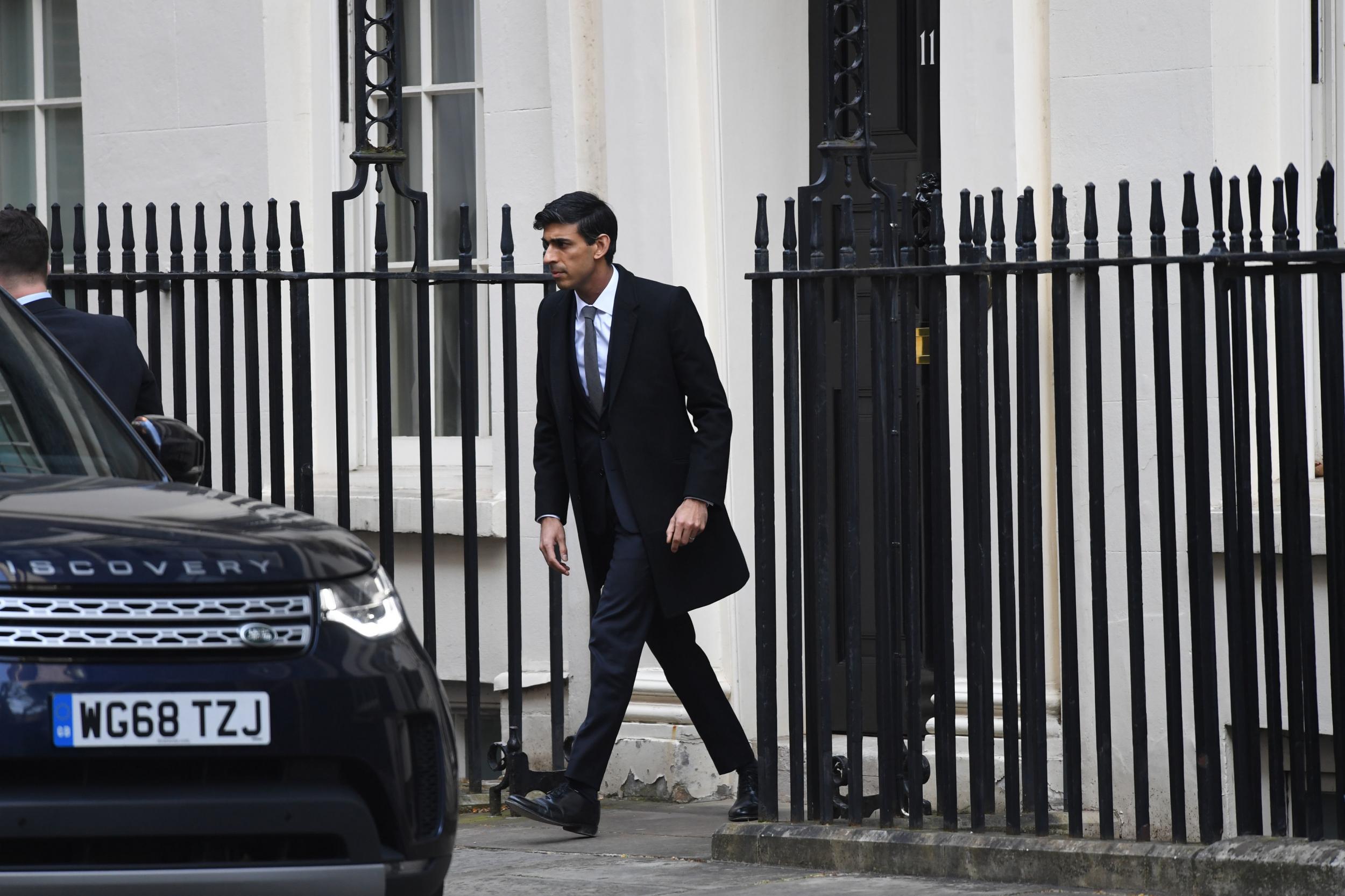We will see if Rishi Sunak has the courage to increase taxes like he should
Presented well, a fair tax system would appeal to the Conservatives’ new supporters, writes Andrew Grice


Rishi Sunak’s announcement of £9bn of financial help for the self-employed was generous as well as unprecedented. Yet, in the long run, his most significant statement will be his clear indication that once the coronavirus crisis is over, the self-employed will have to shoulder more of the nation’s tax burden.
“If we all want to benefit equally from state support, we must all pay in equally in future,” the chancellor said. He is right. The number of self-employed has risen by more than 50 per cent to 5 million in the past 20 years. The tax system gives people an incentive to enjoy that status: the self-employed pay lower national insurance (9 per cent) than salaried employees (12 per cent), a difference that costs the Treasury £5.1bn a year.
Sunak will need that money – and a lot more – when the country has to, in his words, “right the ship” after the storm. He was right to prepare people for some turbulence, and kickstart a debate about how the coronavirus bills will be paid.
The chancellor will be well aware that Phillip Hammond, one of his predecessors, got his fingers badly burned in 2017 when he proposed to raise national insurance for the self-employed. Accused of breaking the election manifesto, Hammond made a swift U-turn after a Tory rebellion on behalf of “white van man”. While last December’s manifesto promised no rise in the rates of tax, national insurance or VAT, it has clearly been overtaken by dramatic, unforeseen events.
Even without the coronavirus, taxes would have had to rise to fund Boris Johnson’s “levelling up” agenda. Now they will need to go up in spades. Balancing the books through another round of austerity will not be an option in what will be a transformed political landscape.
Tory MPs representing the party’s new working-class supporters in the north of England and the midlands are already nervous about Sunak’s renewed assault on “white van man”. But his proposal does not have to be seen like that. He will now need to be a reforming chancellor, more like Nigel Lawson, who shook up the system in his first year, than Geoffrey Howe, who lopped 3p off income tax in his first Budget.
Sajid Javid might have dreamt of a 2p cut if he had delivered a Budget, although Johnson’s allies insist he never made the sums add up. Now the Tories will not dream of cutting taxes for a generation. The question will be: how do we put them up?
To be a radical reformer, Sunak should tax income from wealth the same as that from work. More than a quarter of the income of the richest 1 per cent comes from dividends and partnerships According to the IPPR think tank, such a reform could raise £90bn over five years needed to rebuild the public finances and public services. A fair tax system would fit the nation’s likely new mood, and prevent Labour capitalising on it as the outgoing Jeremy Corbyn and John McDonnell believe the party will. “The values of our society, I think, are changing,” McDonnell told BBC Radio 4 on Friday. True, I suspect. However, Labour should not assume that the Tories will fail to adjust to the new mood.
Sunak, who has so far come impressively through his baptism of fire and looks like a future prime minister, understands the values point. As he said: “This struggle will not be overcome by a single package of measures, or isolated interventions. It will be won through a collective national effort. Every one of us, doing all we can to protect families, neighbours, friends, jobs.”
He could go the whole hog by merging tax and national insurance. The Tories have made a start by raising the national insurance threshold and have promised to eventually bring it into line with tax. Yes, a merger would create losers among those on middle and higher incomes. But there will never be a better time to do it; the need for everyone to help “right the ship” will provide some cover.
Sunak should also bring in higher council-tax bands for the most expensive properties. For good measure, he could show the Tories are serious about the forgotten emergency on climate by bringing in green taxes (and finally ending the freeze on petrol duty).
Tory MPs would fear nightmare headlines about imposing a “wealth tax” that hurts their natural supporters, including their donors. Yet hitting those who could most afford it would blunt the criticism that the government is attacking “white van man.” Presented well, a fair tax system would appeal to the Tories’ new supporters. Squealing from Tory traditionalists, who would call it “levelling down”, would amplify the message to the working classes. It would be “levelling up.”
We’ll soon find out whether Sunak will live up to his own words: “This is not a time for ideology and orthodoxy. This is a time to be bold. A time for courage.”
Join our commenting forum
Join thought-provoking conversations, follow other Independent readers and see their replies
Comments